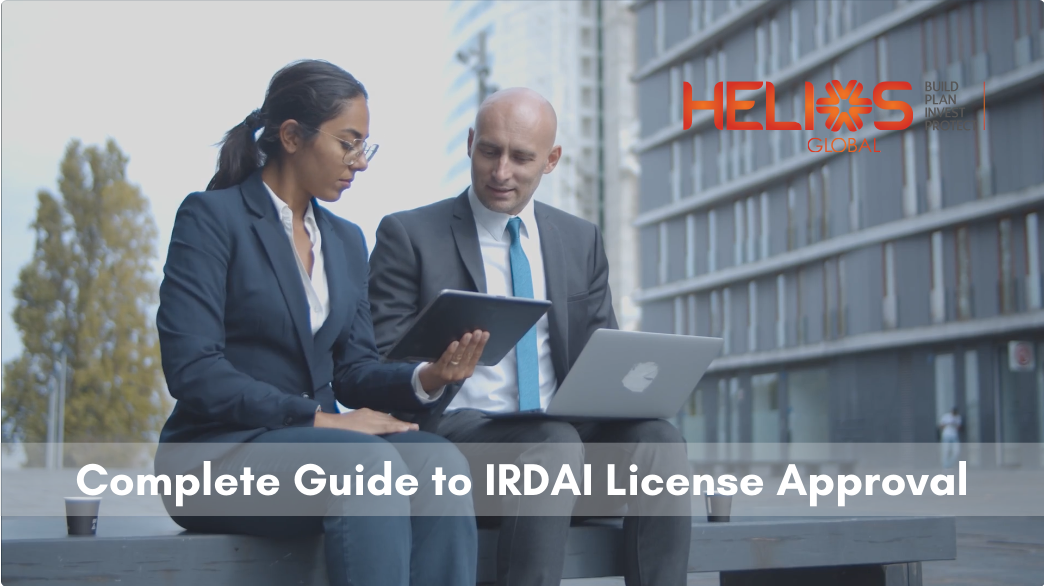How to Get IRDAI License? A Step-by-Step Guide to Becoming an IRDAI Intermediary

If you’re looking to work in the Indian insurance sector, becoming an IRDAI intermediary is a significant career milestone. The Insurance Regulatory and Development Authority of India (IRDAI) governs the insurance industry in India and sets the framework for professionals involved in selling, distributing, or advising on insurance policies. If you’re considering a career in this field, getting an IRDAI license is essential.
In this blog, we will break down the process of getting an IRDAI license and guide you on how to become an IRDAI intermediary. Let’s dive into the details!
What is an IRDAI Intermediary?
Before we jump into the licensing process, let’s first understand what an IRDAI intermediary is. An intermediary is any individual or entity that facilitates the sale, distribution, or servicing of insurance policies. This includes agents, brokers, corporate agents, insurance marketers, and more. Each type of intermediary has a specific role, but all need to be licensed by IRDAI to operate legally.
How to Become an IRDAI Intermediary?
Becoming an IRDAI intermediary involves several steps. Here’s a general guide on how to go about it:
Step 1: Choose the Type of Intermediary
The first thing you need to do is decide what type of IRDAI intermediary you want to become. Each type has specific requirements:
- Insurance Agent: Individuals who represent a single insurance company and sell its policies.
- Insurance Broker: Independent professionals who can sell policies from multiple insurance companies.
- Corporate Agent: An entity (such as a company or firm) that sells insurance policies on behalf of an insurance company.
- Insurance Web Aggregators and Insurance Marketing Firms: These intermediaries sell policies online or manage online sales platforms.
Each type of intermediary has different processes and prerequisites, so ensure you understand which one fits your career aspirations.
Step 2: Meet Eligibility Criteria
The IRDAI has set eligibility criteria that you must meet to qualify for a license. While these may vary slightly depending on the intermediary type, here are some basic requirements:
- Age: You must be at least 18 years old.
- Education: For agents, a minimum qualification of 12th grade (or its equivalent) is typically required. For brokers, a higher level of education may be necessary.
- Training: Most intermediaries must undergo mandatory training before applying for a license. The training programs are organized by approved institutions and cover insurance-related laws, policies, and ethics.
- Good Reputation: You must not have been convicted of a crime or have any record of unethical practices in business.
Step 3: Complete Required Training
Training is a crucial step in becoming an IRDAI intermediary. The IRDAI mandates that all individuals undergo training and certification programs conducted by recognized institutions. The duration and content of the training vary depending on the intermediary role you’re pursuing.
- For Insurance Agents: A minimum 50-hour training program is required.
- For Insurance Brokers: A more comprehensive training program, generally ranging from 100 to 150 hours, is necessary.
These programs prepare you to understand the complexities of the insurance industry, customer service, and ethical sales practices. After completing the training, you’ll need to pass an examination to demonstrate your knowledge.
Step 4: Submit Application to IRDAI
Once you’ve completed your training, you can apply for an IRDAI license. The application process involves submitting the following documents:
- Proof of identity and address
- Educational qualifications
- Training certificate
- Proof of completion of the prescribed hours of practical training
- Passport-sized photographs
For brokers or corporate agents, you’ll need to submit additional documents related to the business or the entity you’re representing.
Step 5: Pay Fees and Examination
The application will be reviewed by IRDAI, and if it meets all requirements, you will be required to pay the applicable fees. These fees vary depending on the type of intermediary you are applying to be. After submitting the fees, you’ll receive an appointment for the exam, if required.
Once you pass the examination, your application will be reviewed, and upon approval, you will be granted your IRDAI intermediary license.
Step 6: Obtain License and Start Your Career
After the IRDAI evaluates your application and exam results, you will receive your official license. As an IRDAI intermediary, you can now legally represent insurance companies, offer policies to clients, and advise them on their insurance needs. This license is renewable at regular intervals, typically every 3 years.
How to Maintain Your IRDAI License?
Once you have an IRDAI intermediary license, you need to ensure it remains valid by complying with regulatory requirements, attending mandatory continuing education programs, and staying updated with changes in the insurance sector. Renewal of the license involves submitting a renewal application along with the necessary fees before the license expires.
Conclusion: How to Get IRDAI License
Getting an IRDAI license is a well-defined process that involves careful preparation, meeting eligibility criteria, completing training, passing exams, and applying to the IRDAI. Whether you aim to become an insurance agent, broker, or another type of intermediary, understanding these steps will help you get on the right path to success in the Indian insurance industry.
By following these steps and maintaining a commitment to ethical practices, you can build a successful career as an IRDAI intermediary and contribute to the growth of India’s insurance sector.
We hope this blog helps answer your questions about how to get an IRDAI license and how to become an IRDAI intermediary. If you’re ready to start your journey in the insurance industry, now is the perfect time to take the first step!


